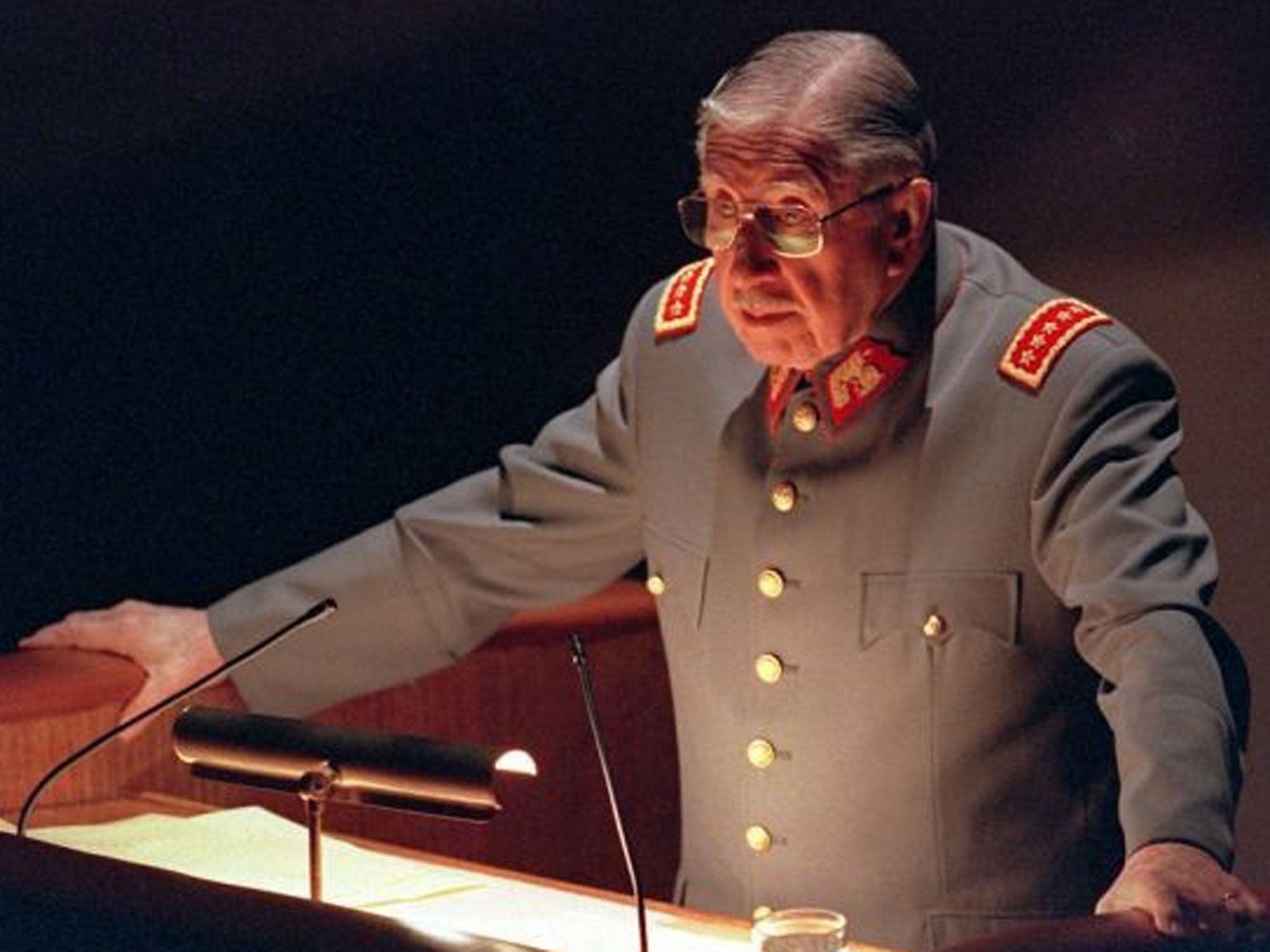Gael Garcia Bernal and how ad-men toppled General Pinochet
The fall of Chile's military leader has been turned into an Oscar-nominated movie starring Gael Garcia Bernal

Your support helps us to tell the story
From reproductive rights to climate change to Big Tech, The Independent is on the ground when the story is developing. Whether it's investigating the financials of Elon Musk's pro-Trump PAC or producing our latest documentary, 'The A Word', which shines a light on the American women fighting for reproductive rights, we know how important it is to parse out the facts from the messaging.
At such a critical moment in US history, we need reporters on the ground. Your donation allows us to keep sending journalists to speak to both sides of the story.
The Independent is trusted by Americans across the entire political spectrum. And unlike many other quality news outlets, we choose not to lock Americans out of our reporting and analysis with paywalls. We believe quality journalism should be available to everyone, paid for by those who can afford it.
Your support makes all the difference."I think most people around the world know how Pinochet came to power," film director Pablo Larrain says.
”But I'm not sure many people know how he was defeated. What happened was a fascinating mix of media, advertising and capitalism.“ Larrain's latest film, No, tells the absorbing advertising story behind the referendum and the strategists that brought down Chile's dictator.
In the late 1980s the leader had looked to soften his image and begun to swap his military attire for demure suits. Under pressure from the US – an ally that had backed his 1973 coup that toppled the democratically elected leftist president Salvador Allende – a vote was called. More importantly, for the first time in almost a generation, the opposition was granted 15 minutes of TV airtime a day in the lead-up to the October date. Their task was to convince Chileans it was time for change – and that they didn't need to be afraid to go out and vote.
The film, nominated in the Best Foreign Language Film category at this month's Oscars, stars Gael Garcia Bernal as Rene Saavedra, the silky voiced adman leading the “No” campaign. It's a commanding lead performance from the Mexican actor who rose to international fame in art-house classics such as Amores Perros and Babel, and a welcome return to the pinnacle of Latin American cinema after some questionable recent choices (the less said about 2011's A Little Bit of Heaven, alongside Kate Hudson, the better).
Bernal's character has to come up with an ad campaign that strikes the right note. After battling with politicians who want the TV spots to be sombre reflections of the horrors of the dictatorship, his vision wins out. The focus is to be entirely positive – a reflection of the sort of Coca Cola-embracing free-market economy that Pinochet ironically helped nurture – used against him. The campaign comes up with a multi-coloured, all-inclusive rainbow logo while TV adverts use bright, sunny images and blond, smiling protagonists, accompanied by the slogan that “Happiness is Coming”. The “Yes” campaign is left stymied.
The film uses a fair amount of artistic licence. Characters have been condensed and simplified and Saavedra is actually the amalgamation of real-life characters Jose Manuel Salcedo and Eugenio Garcia, with some family issues thrown in for good measure (his estranged wife Veronica is played by Larrain's wife Antonia Zegers). Both Salcedo and Garcia have cameo roles in the film, but are cast against type, appearing as “Yes” campaign colluders.
The most blatant dramatisation is the role of Lucho Guzman, played by Alfredo Castro, Saavedra's advertising boss who also happens to be one of the junta's inner circle. In real life, the two characters never worked under the same roof. But it provides a genuinely gripping extra dimension to the film; Guzman, star of Larrain's two previous films, is a wonderfully sinister villain.
Larrain is keen to point out that No is faithful to the key facts and how they unfolded. Using a 1983 U-matic video camera to give the film a grainy edge, Larrain cleverly splices drama with news footage. He also shot fresh footage of Chile's first post-Pinochet president, Patricio Aylwin, at a re-staged “No” campaign victory party, cutting it with genuine newsreel.
No is the culmination of a trilogy based on the dictatorship – something Larrain says came about quite unwittingly. He says he was looking to answer how Chilean society “could hurt itself so much”.

Watch Apple TV+ free for 7 days
New subscribers only. £8.99/mo. after free trial. Plan auto-renews until cancelled

Watch Apple TV+ free for 7 days
New subscribers only. £8.99/mo. after free trial. Plan auto-renews until cancelled
The first two films in the series, Tony Manero and Post Mortem – both starring Castro – used the dictatorship as a side-story to explore the complexities of the main characters. In the first film, Castro plays the character of Raul Paralta, a John Travolta-obsessed serial killer; in the second he is an emotionally repressed morgue worker watching the bodies piling up. But, in No, the dictatorship suddenly takes centre stage.
“Maybe those first two movies were about people who were defeated,” Larrain muses. “But No is about a triumph and has an epic quality. As a director, you don't get to tell those sorts of stories often.”
'No' opens in UK cinemas on 8 February
Join our commenting forum
Join thought-provoking conversations, follow other Independent readers and see their replies
Comments